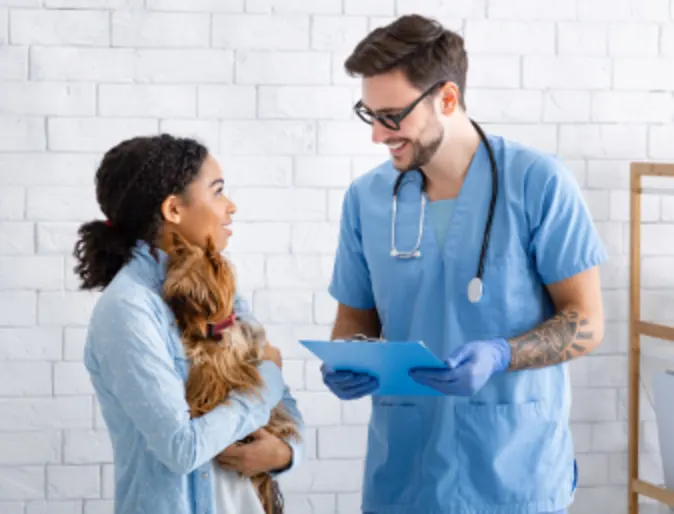Premier Veterinary Group

Emergency + Urgent Care
Help! My Pet Ate Something!

Gather
Gather as much information as you can:
Do you have the wrapper, box, or any packaging?
How much did your pet eat?
When did they eat it?
How are they acting?

Call
If you're unsure if your pet ate something or if it's toxic, but no symptoms have presented, please call:
24/7 Pet Poison Helpline: (800) 213-6680
24/7 ASPCA Animal Poison Control: (888) 426-4435

Go
If your pet is already showing symptoms or acting strange, or if you're sure they ate something toxic:
Go to the nearest open veterinary hospital, or your primary vet
Go to the nearest emergency vet hospital
URGENT CARE SYMPTOMS AND CLINICAL SIGNS IN A PET INCLUDE THE FOLLOWING:
We are actively working to recruit additional team members to return to 24/7 ER coverage.
Vomiting
Diarrhea
Loss of Appetite or Lethargy
Blood in Urine or Stool
Coughing Without Respiratory Distress
Lameness, Limping, or Difficulty Walking
Traumatic Lacerations or Injuries
Eye Issues
Allergic Reactions or Asthma
Bite Wounds
End-of-Life Assessment/Euthanasia
Skin and Ear Issues
Tick-borne Disease
PET-SPECIFIC FIRST AID KIT:
We recommend keeping a pet-specific first aid kit in your car as a best practice, just as you would a human-first aid kit. Click the link for a printable PDF to keep in your kit when you need to restock.
You can view the PDF format by downloading the free Adobe Acrobat reader.
First Aid Kit Checklist
☐ Pet backpack or lunchbox: Place all of the following items inside and remember to restock
☐ Phone numbers: Your regular veterinarian, the closest emergency room, poison control (888) 426-4435
☐ A spare leash
☐ Self-cling bandage
☐ Muzzle
☐ Gauze Pads
☐ Ice Pack
☐ Cotton balls
☐ Scissors
☐ Saline Solution
☐ Rectal thermometer
☐ Disposable gloves
☐ Blanket
☐ Diphenhydramine: Benadryl®
☐ Stypic powder: Kwik stop
☐ Nail clippers
☐ Flashlight
☐ Rubbing alcohol (to clean the thermometer)
☐ Your pet's paperwork (rabies certificate, important medical records)
